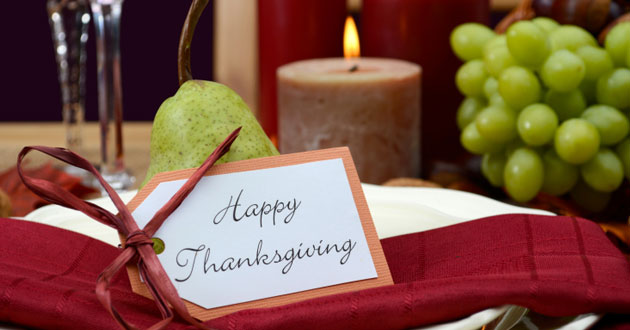Bread winner: Provoking harmony with kind acts

When my wife and I first moved into the house we live in now, our next-door neighbors had their own business and worked out of their home. They seemed nice enough, although they had a rough edge or two.
They were suspicious of everyone, especially the government, and weren’t too sure about my wife and me, either. The combination of academia AND journalism made me just a little shady in their eyes (especially when I wore my “Trust Me—I’m a Reporter” T-shirt). To top it off, we drove a Volvo. It was the trifecta of anti-Americanism, in their view.
We told our neighbors the good news when we found out that my wife was pregnant. Always able to find the shadow in sunlight, they said, “Ugh. I hope your baby doesn’t cry all the time like the baby that was in your house before you. Drove us crazy.”
Obviously, we didn’t expect them to host the neighborhood baby shower.
One day when we got home from work, my wife and I went through the day’s mail. One item was a letter from those very neighbors. It had a stamp on it and had gone through the post office, even though our houses were within steps of each other.
“How odd,” I said, as I opened it and began reading it out loud.
The letter was a litany of their complaints about us as their neighbors. Our dog barks too much and leaves deposits along the fence that makes it difficult for them to work in their driveway. I play my music too loudly with the windows open. We have friends over who are loud when they get back in their cars late at night. On windy days our eucalyptus trees shed leaves into their boat on the other side of the fence. Someday those trees were going to blow over altogether onto that boat and then we’d have a real problem on our hands, the letter said.
As I read this out loud, I took on a German accent and clicked my heels for emphasis. My wife was not amused. The letter finally ended with demands that we do something about these offenses right away.
“I’ll do something, all right,” I said, feeling the testosterone filling my being. I headed for my computer. They want to get into a war of words with a writer? Seriously? I snorted throughout the composing of my witty, snarky response. In the background I heard my wife working in the kitchen.
“What are you doing?” I asked.
“Baking bread.”
“At a time like this? Who can eat when we’ve been insulted? Anyway, I’m not hungry.”
“It isn’t for you. It’s for our neighbors.”
I thought about this for a moment, then caught her drift.
“Of course! I’ll get the needles and the crushed glass! I like the way you think!”
She turned to me with a very serious face.
“If we are going to live here for a long time, we are going to have to find a way to be neighbors with these people,” she said. “This is the only way I know how.”
Both of us agreed that my letter was brilliant, cutting, and justifiably vicious, but when the bread was ready, that’s all we brought next door.
When the lady of the house answered our knock on their door, she saw it was us and took a step backward. Maybe she thought we were going to let the dog loose on her.
“We baked you some bread,” my wife said. “Can we talk about your letter?”
They invited us in, and the awkwardness of the moment disappeared almost immediately.
Pretty soon they were offering us drinks, snacks, and a game of cards.
Our evening together became a reconciling moment. Even though we were offended, the bigger issue my wife recognized was that what we really needed was to live at peace with our neighbors. The bread was a symbol, and so much more.
Harmony, wholeness, reconciliation, are all part of God’s work in our families, our faith communities, our places of work, our neighborhoods and in all of creation. Through Christ, “God chose to reconcile the whole universe to himself, making peace through the shedding of his blood upon the cross—to reconcile all things, whether on earth or in heaven, through him alone.” (Colossians 1:20, NEB).
May the peace of Christ motivate us in 2015!
— by Dean Nelson
Nelson directs the journalism program at Point Loma Nazarene University in San Diego. His book on seeing God in everyday life is God Hides in Plain Sight: How to See the Sacred in a Chaotic World.





